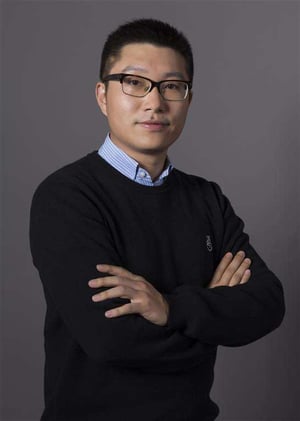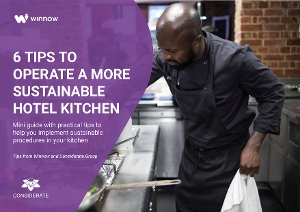Food waste is one of the world’s most urgent issues with a third of all food never reaching our forks. IKEA is one of the world leaders in food sustainability. With its Food Is Precious initiative, IKEA aims to cut food waste by 50% by the end of August 2020. With Winnow, IKEA China is significantly improving kitchen operations to cut wastage.
To reach the reduction target, IKEA China brought Winnow into its kitchens in 2017 to fight food waste with Winnow’s cutting-edge technology. Now, Winnow is present in all 26 IKEA stores in the country, and the kitchen team in China has saved over 223,000 meals.
Discussing with Brian Liu, Country Sustainability Manager at IKEA China, IKEA’s overall sustainability strategy, we received insight into how they are managing to cut food waste in their kitchens.
- How did your career begin and why were you drawn to the sustainability sector?
I have been working in the corporate social responsibility (CSR) sector for almost 16 years. I first started purely by chance at Wal Mart. There, I was responsible for ensuring that suppliers would follow the brand’s code of conduct. At that time, CSR was a new topic for China and many people couldn’t see why companies should address it.
Once I stepped into this sector, I realized the great impact that companies could bring for society through their CSR programme. Today, I challenge myself to always think outside the box to drive the topic of sustainability all the way from the supply chain to consumers.
- Tell us about IKEA China sustainability strategy?
At IKEA, we put sustainability at the heart of everything we do. Through sustainability, IKEA wants to be People & Planet Positive. In China, we focus on the following areas:
- Making healthy and sustainable living affordable and accessible to many people.
- Striving for circular operation. We are developing more solutions to re-use products and looking for ways to extend the life cycle of IKEA products.
- Becoming a greener multi-channel retailer. We aim to reduce our environmental impact throughout the IKEA operation continually.
- Being a good community neighbour. Our goal is to play a more active role in the local community and make our contribution to tackling local social challenges.
- What are some of the local environmental challenges you face in China?
 During the past 40 years, China has witnessed fast economic growth. As a consequence of that, the environment has suffered. Air pollution, for example, has become dangerously high in China. The good news is that the Chinese government fully acknowledges relevant environmental challenges and has already placed green development as a top priority.
During the past 40 years, China has witnessed fast economic growth. As a consequence of that, the environment has suffered. Air pollution, for example, has become dangerously high in China. The good news is that the Chinese government fully acknowledges relevant environmental challenges and has already placed green development as a top priority.
- After implementing Winnow, how quickly did you see the impact?
We tend to see positive results shortly after we install Winnow. At the moment, all 26 IKEA stores in China are using Winnow. With the help of the insights from the Winnow reports, IKEA China has saved over 222,956 meals. Also, we already avoided over 383 tons of CO2 emission. This is the same as saving 37 gallons of diesel from being consumed.
- Before, Winnow, did you think you had a food waste problem?
We understand that food waste is a big challenge for the hospitality industry. This is because, without technology, it is not easy for kitchens to have a clear view of where and how food waste occurred. Winnow gives us clear data, and that empowers us to identify what’s the root cause of food waste and how we could come up with concrete actions to reduce it.
- How do you see IKEA becoming more sustainable in the future?
At IKEA, we have decided to put sustainability at the heart of our transformation. By 2030, our ambition is to be a circular business built on clean and renewable energy. To transform our business, we look for effective changes, focusing on the cause of the issues instead of only treating the symptoms.
- Why is new technology so exciting for someone in sustainability?
Technology is exciting for us because sustainability is linked to innovation. The development of new technologies has the potential to reach more people and create a more significant impact. That’s why IKEA is continually looking to use innovative solutions, and we appreciate when our partners do the same.
- What is your advice to fellow managers who are looking to reduce food waste?
‘If you can’t measure it, you can’t manage it’. My advice to fellow Sustainability Managers looking to reduce food waste would be to focus on collecting data that can support your project. By doing so, you will be able to see what is the size of your problem and how you start tackling it.
- How would you challenge the rest of the industry to follow your example?
I would challenge the rest of the industry to stop treating sustainability separately from the rest of the business. Large brands should be looking into ways that they can leverage their business to tackle social and environmental challenges. It’s all about creating shared company values in a responsible way.









Comment on my blog